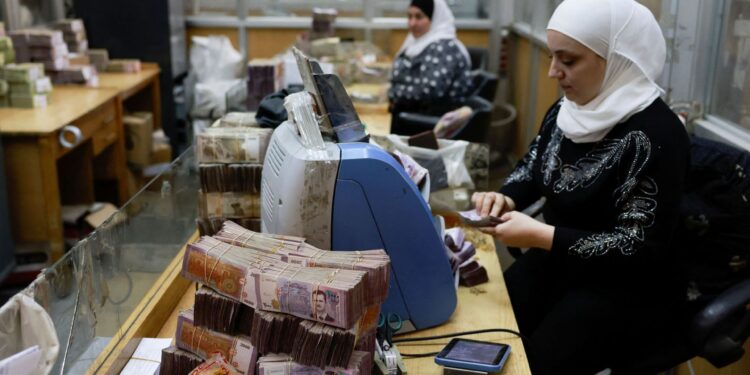The exchange rate of the Syrian pound against the dollar – today, Tuesday, stabilized in the parallel market transactions. He also recorded stability in official transactions, according to the Central Bank of Syria bulletin issued today.
The exchange rate of the Syrian pound against the dollar in the parallel market
- The exchange rate of the lira in Damascus, Aleppo and Idlib stabilized at 10 thousand and 150 pounds upon purchase and 10 thousand and 300 pounds upon sale, which are the levels recorded yesterday evening.
- The exchange rate recorded stability in Hasaka at 10 thousand and 350 pounds when purchasing, 10 thousand and 500 pounds for the sale, which are the levels recorded yesterday.
The exchange rate of the Syrian pound against the dollar in official transactions
The Central Bank of Syria established the exchange rate of the lira against the dollar at the level of 13 thousand and 200 pounds when purchasing, and 13 thousand and 332 pounds upon sale.
https://www.youtube.com/watch?v=lyvogvzncee
Factors influencing the exchange rate of the Syrian lira
- The decrease in the number of state employees, after removing the jobs of a large number of fictitious employees.
- The former regime’s army and its police were dissolved, and they were the owners of the largest share of the salaries of the state and the money that was moving the markets.
- The supply of the lira fell against the requirements of the markets, which was reinforced by the increase in commercial activity.
- The European Union has suspended a package of sanctions imposed on Syria, some of which are related to energy, banks, transportation and reconstruction.
- The Office for the Implementation of the Financial Sanctions (OFSI) at the British Treasury issued a license aimed at facilitating humanitarian activities in Syria, and securing the access of aid to the most destructive segments, despite the economic sanctions imposed on the country.
- The United States temporarily raised its sanctions on Syria, which opened the way for dealings with government institutions and energy transactions, and allowed the transfer of personal funds to the country, including through the Central Bank of Syria.



